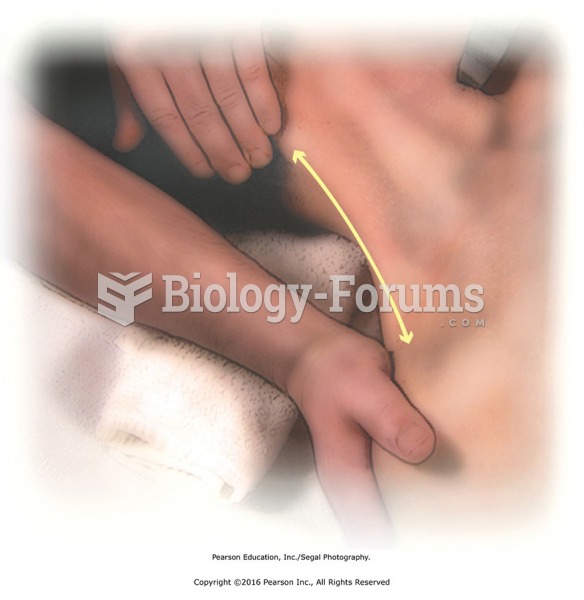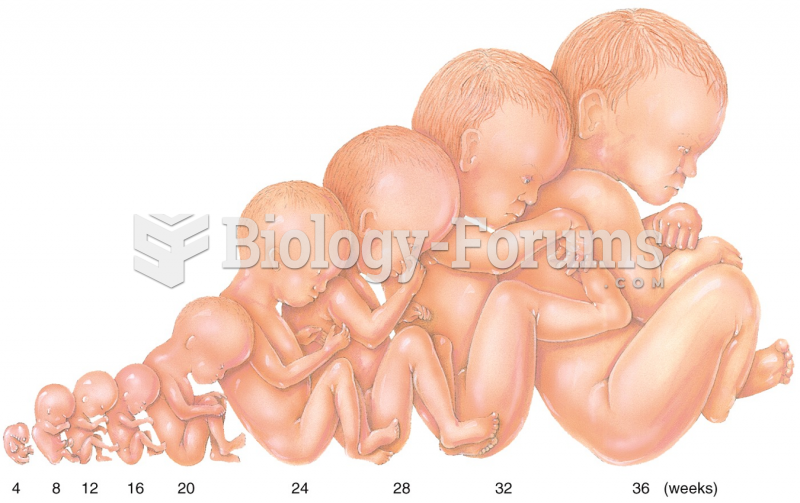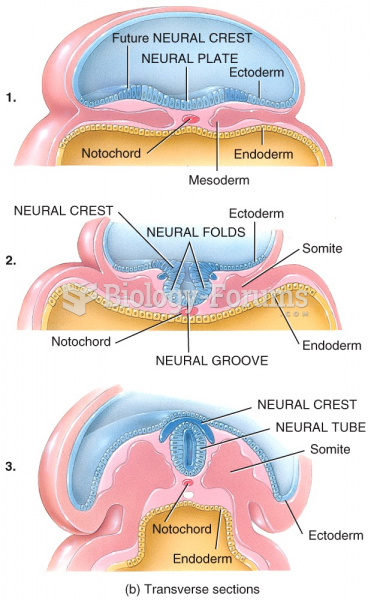|
|
|
For about 100 years, scientists thought that peptic ulcers were caused by stress, spicy food, and alcohol. Later, researchers added stomach acid to the list of causes and began treating ulcers with antacids. Now it is known that peptic ulcers are predominantly caused by Helicobacter pylori, a spiral-shaped bacterium that normally exist in the stomach.
On average, the stomach produces 2 L of hydrochloric acid per day.
Aspirin is the most widely used drug in the world. It has even been recognized as such by the Guinness Book of World Records.
Alzheimer's disease affects only about 10% of people older than 65 years of age. Most forms of decreased mental function and dementia are caused by disuse (letting the mind get lazy).
Asthma occurs in one in 11 children and in one in 12 adults. African Americans and Latinos have a higher risk for developing asthma than other groups.
 Timing of teratogens. Vulnerability to teratogens is greatest in the embryonic period. Source: Moore
Timing of teratogens. Vulnerability to teratogens is greatest in the embryonic period. Source: Moore
 Broadening effleurage to lower leg. Place heels of the hands together over tibia (no pressure over ...
Broadening effleurage to lower leg. Place heels of the hands together over tibia (no pressure over ...





